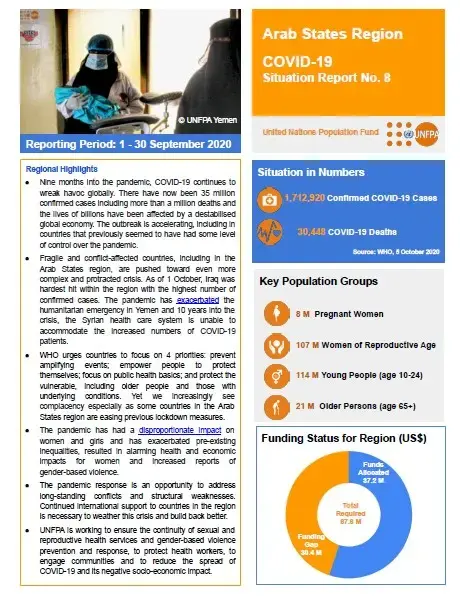Nine months into the pandemic, COVID-19 continues to wreak havoc globally. There have now been 35 million confirmed cases including more than a million deaths and the lives of billions have been affected by a destabilised global economy. The outbreak is accelerating, including in countries that previously seemed to have had some level of control over the pandemic.
Fragile and conflict-affected countries, including in the Arab States region, are pushed toward even more complex and protracted crisis. As of 1 October, Iraq was hardest hit within the region with the highest number of confirmed cases. The pandemic has exacerbated the humanitarian emergency in Yemen and 10 years into the crisis, the Syrian health care system is unable to accommodate the increased numbers of COVID-19 patients.
WHO urges countries to focus on 4 priorities: prevent amplifying events; empower people to protect themselves; focus on public health basics; and protect the vulnerable, including older people and those with underlying conditions. Yet we increasingly see complacency especially as some countries in the Arab States region are easing previous lockdown measures.
The pandemic has had a disproportionate impact on women and girls and has exacerbated pre-existing inequalities, resulted in alarming health and economic impacts for women and increased reports of gender-based violence.
The pandemic response is an opportunity to address long-standing conflicts and structural weaknesses. Continued international support to countries in the region is necessary to weather this crisis and build back better.
UNFPA is working to ensure the continuity of sexual and reproductive health services and gender-based violence prevention and response, to protect health workers, to engage communities and to reduce the spread of COVID-19 and its negative socio-economic impact.


